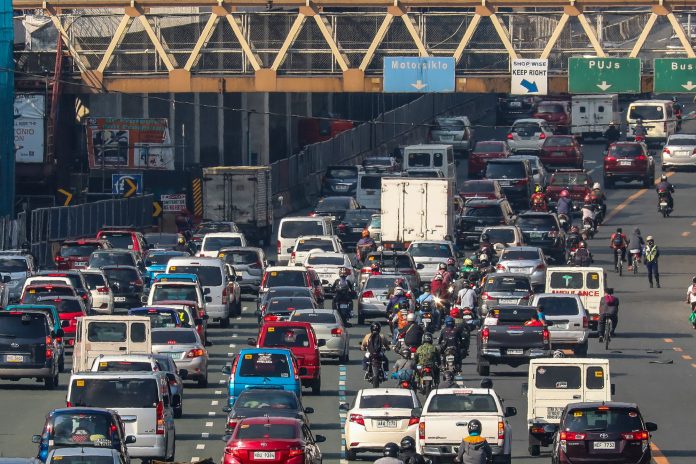“No vehicle plate, no travel,” the Land Transportation Office warned starting Jan. 1. Within four weeks, 272,233 delinquent registrations were renewed. More are rushing to be processed this month.
What were the owners thinking? Did they purposely evade renewal or just forget when idled by the pandemic? Did they expect to get away with it like politicians do when plundering public funds?
Answers perhaps lie in the breakdown. The delinquents consisted of 12,123 sport utility vehicles, 20,427 sedans, 5,617 taxis, 168 buses, 34,436 jeepneys, 198,283 motorcycles, and 1,098 tricycles.
Owners of pricey SUVs, cars, taxis, or buses have wealth and status. LTO registration fees are paltry for them.
Jeepneys, motorcycles, tricycles denote low incomes.
Whatever the answers are, the 272,233 show how unsafe roads are. Registrants must first undergo a roadworthiness test. More so, public utility vehicles: taxis, buses, jeepneys, tricycles.
Vehicle registration can gauge good citizenship. Same with a driving license. Both are requisites before motorists may traverse public roads. Unlicensed vehicles and drivers must not add to city traffic.
The figures are worse, LTO chief Vigor Mendoza said in November, his fourth month in office. From computer files, land vehicles totaled 38 million in year-end 2022. But only 14 million registrations were renewed. Where are the 24 million others?
Mendoza studied the stats. Of the 24 million, 70 percent are motorcycles that don’t last long. Only six million, or one-fourth of the 24 million are still running, Mendoza estimated. Assume the rest to be busted. If so, where are those 18 million junk units? Those can perk up the metals industry.
As for the six million, they’re the delinquent registrants that Mendoza targets for renewal. The 272,233 renewals in January were only 4.54 percent of the target.
Mendoza again classified 70 percent of the six million, or 4.2 million, as motorcycles. The rest, 1.8 million, have four or more wheels.
Some of the motorcycles are for personal use. Owners ride at risk. Traffic authorities can impound the units on sight. Penalties for release and late registration are imposed.
The bulk is public utilities: tricycles, habal-habal, rentals – all illegal and thus confiscable. LTO field offices are partnering with local governments to have them registered. One of four Bukidnon congressional districts alone has 18,000 colorum tricycles, a mayor told Mendoza.
LTO is also coordinating with motorcycle fleet owners like fast-food chains and delivery services. Multiple transactions are made easy.
Ironically, some of the 1.8 million unregistered cars and vans are government-owned. Mendoza has reminded national agencies, provincial capitols, and city and municipal halls to set good examples for constituents.
LTO has a portal for online registration, Mendoza said. Payment can be via bank transfer or e-wallet. The site has a page where registrants can choose a third-party liability insurance provider.
Every system has kinks. The LTO head office recently intercepted a gang of registration plate thieves, including the warehouse security guard. Stolen plates are sold to smugglers and buyers of luxury vehicles.
Due to a supplier mistake, LTO also ran out of plastic cards to print driving licenses. The agency had to procure from another government unit.
Meanwhile, the bitter fight between the old and new driving license system suppliers is shaking up LTO. Multi-billion pesos are at stake.
Jarius Bondoc is an award-winning Filipino journalist and author based in Manila. He writes opinion pieces for The Philippine Star and Pilipino Star Ngayon and hosts a radio program on DWIZ 882 every Saturday. Catch Sapol radio show, Saturdays, 8 to 10 a.m., DWIZ (882-AM).
The views expressed in this article are the opinions of the author and do not necessarily reflect the editorial stance of LiCAS News.









